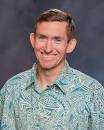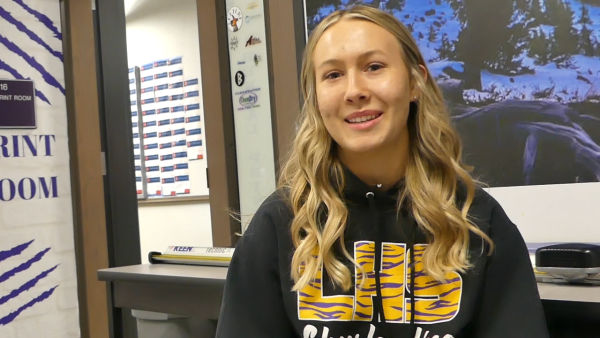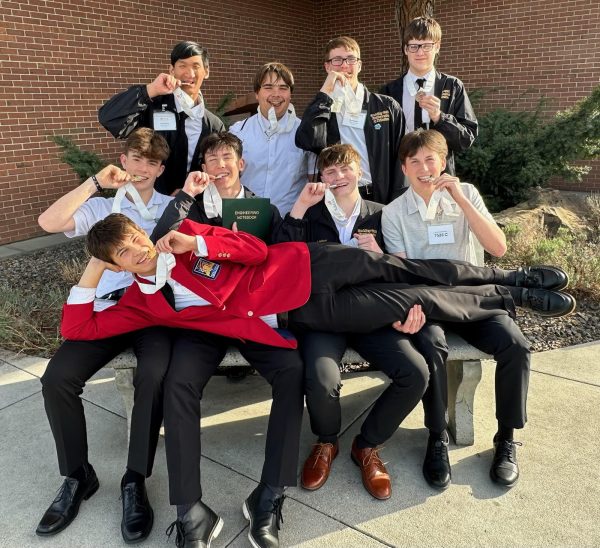Interview with William Autrey

William Autrey. Photo courtesy of lewistonschools.net
To gain more understanding of the world in a positive light, William Autrey agreed to share some of the insights he has gained while teaching macroeconomics at LHS.
Bengal’s Purr: When people mention improvements the world has made, what is your response to the rebuttal of comments that include individual atrocities like the war between Russia and Ukraine, the war on reproductive rights, etc.?
William Autrey: That’s really hard. Especially as a teacher, you never want to make less of important things to people. I 100% agree with the thought, “Well, yeah, that’s great, but sometimes we need to be focusing or zooming in on other things.” If we’re not making light of them then they go away, or the discussion ends, and people get to take advantage of other people. I think that’s why it’s important to acknowledge them. But [with] what’s going on in Syria and Turkey with the earthquakes, for example, look at the way that people, communities and nations come together when these tragedies happen. And then all the outside funding and stuff that comes in. But for some reason we focus on what didn’t happen. The same happens with recognizing advancements in things like technology and climate activism, and positive things that are happening elsewhere. We also look at tragedy to the people rather than the cause of what happened. Syria and Turkey, again, as an example, had poor housing, and we are so reactionary instead of asking what we can now do to improve. I think it’s hard to always be positive, but I also think it’s important to understand there’s more going on than just what we can see.
BP: Would you say that people who look more often at the positive side of things are optimists or realists?
WA: I think you can be a realist and be an optimist, but I would say that pessimists would not necessarily be realists. A commonly used example would be religious freedoms. But the vast majority of the people in the country live completely untouched by the government when it comes to religious freedoms. The state of the world by pessimism is often not a realistic viewpoint, true. That being said, there’s always things that impact everybody individually, so that’s the way they see it, too. So, if I don’t have a job, then the world is in a bad place. If I don’t feel like I can practice my religion, the world is in a bad place. If I don’t have reproductive rights, I’m in a bad place. It’s real for [people], and we can’t take that away. But, especially here in the U.S., it could be so much worse and it’s not.
BP: Do you think that recognizing advancements we’ve already made is important to making further progress?
WA: Yes, absolutely. Climate change, I think, is the best example of that. We’re not done with climate change, and critics of climate change are often talking about how “the bar moves all the time.” But what I think they don’t understand is that that’s exactly how it should be. So when people say, “Well, we only have five years left,” what it should be is, “Well, we actually have 10 because people are implementing different things.” Or, “We actually have 25 [years] because of this.” The same thing goes for stuff like population growth. I think looking at all of that is an important reason to look at all our progress.
BP: Is there anything you’d like to add?
WA: I think it’s important to look for alternative answers to what you believe, and be willing to listen to what someone else has to say. We should just take a moment to listen to what somebody else’s opinion is, and [to] consider it, even if we don’t agree.




